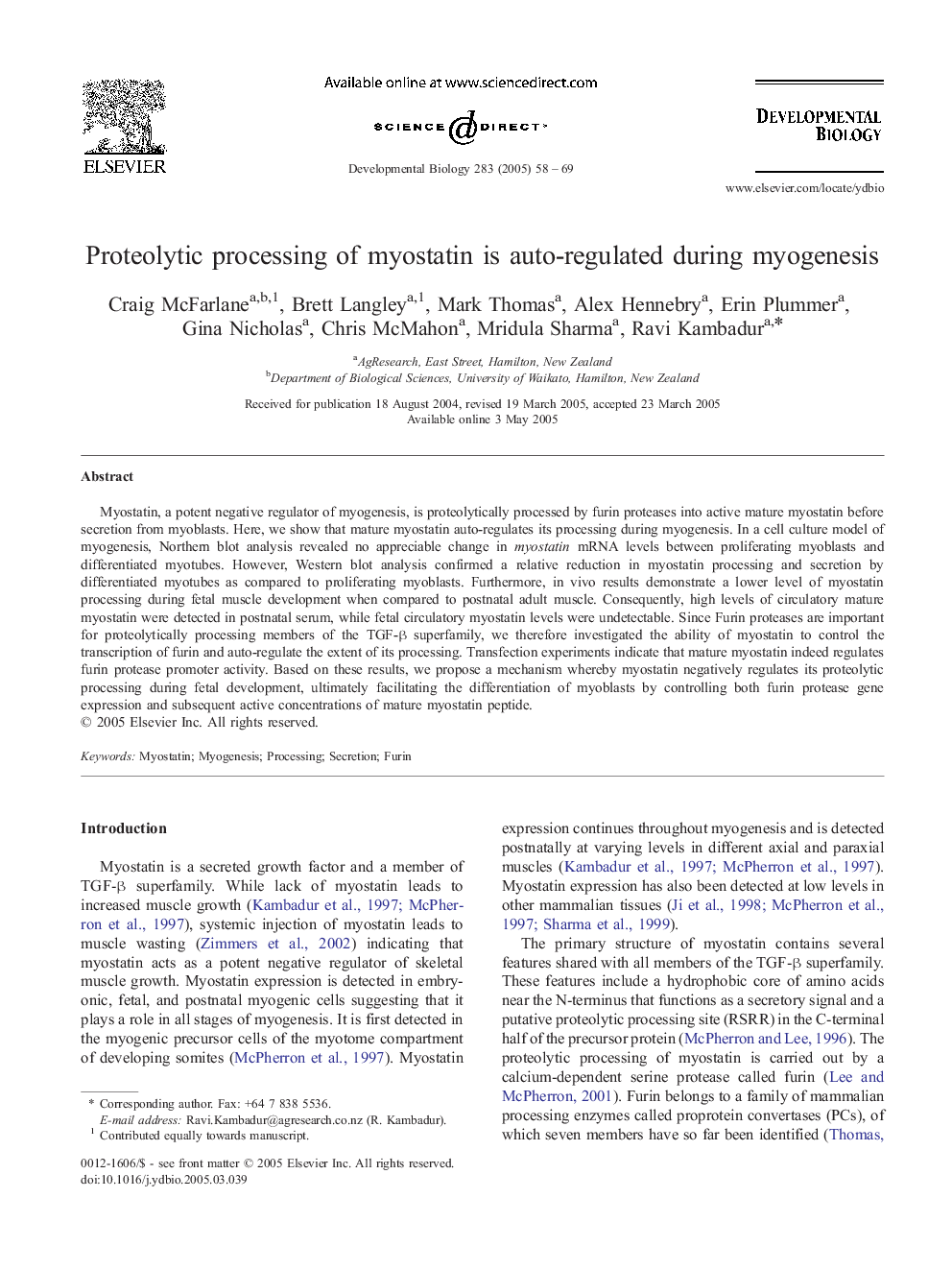| Article ID | Journal | Published Year | Pages | File Type |
|---|---|---|---|---|
| 10934095 | Developmental Biology | 2005 | 12 Pages |
Abstract
Myostatin, a potent negative regulator of myogenesis, is proteolytically processed by furin proteases into active mature myostatin before secretion from myoblasts. Here, we show that mature myostatin auto-regulates its processing during myogenesis. In a cell culture model of myogenesis, Northern blot analysis revealed no appreciable change in myostatin mRNA levels between proliferating myoblasts and differentiated myotubes. However, Western blot analysis confirmed a relative reduction in myostatin processing and secretion by differentiated myotubes as compared to proliferating myoblasts. Furthermore, in vivo results demonstrate a lower level of myostatin processing during fetal muscle development when compared to postnatal adult muscle. Consequently, high levels of circulatory mature myostatin were detected in postnatal serum, while fetal circulatory myostatin levels were undetectable. Since Furin proteases are important for proteolytically processing members of the TGF-β superfamily, we therefore investigated the ability of myostatin to control the transcription of furin and auto-regulate the extent of its processing. Transfection experiments indicate that mature myostatin indeed regulates furin protease promoter activity. Based on these results, we propose a mechanism whereby myostatin negatively regulates its proteolytic processing during fetal development, ultimately facilitating the differentiation of myoblasts by controlling both furin protease gene expression and subsequent active concentrations of mature myostatin peptide.
Related Topics
Life Sciences
Biochemistry, Genetics and Molecular Biology
Cell Biology
Authors
Craig McFarlane, Brett Langley, Mark Thomas, Alex Hennebry, Erin Plummer, Gina Nicholas, Chris McMahon, Mridula Sharma, Ravi Kambadur,
